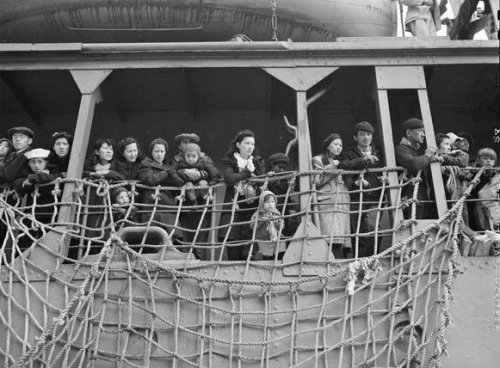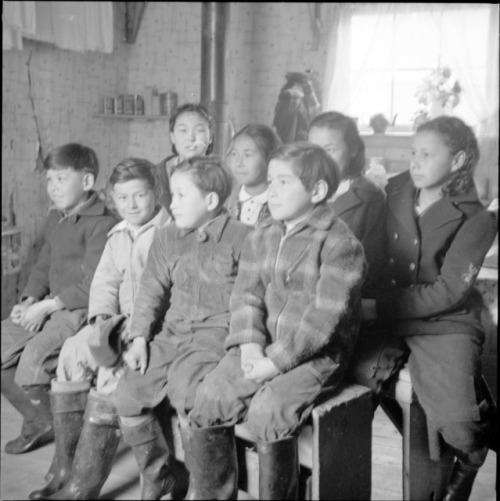The Forgotten Aleut Internment of World War II,For the past several months I have been doing some po
The Forgotten Aleut Internment of World War II,For the past several months I have been doing some posts on the internment camps of World War II, in particular the lesser known internment camps, such as Canada’s little known internment of Japanese Canadians during the war. Going down the rabbit hole even further, I recently discovered a little known piece of history known as the “Aleut Internment”, a bizarre and incredibly sad part of American history which extremely few know about.The Aleut people are an indigenous native people who live in the Aleutian Island chain of Alaska.In June of 1942 Japanese forces invaded the island of Attu and Kiska. This kicked off a year long campaign by American and Canadian forces to oust the Japanese from the islands. While the attack on the Aleutian Islands was an attempt by Japan to divert attention away from a possible invasion of Hawaii, the Allies feared a further invasion of the Aleutian Islands and Alaska. When the Japanese occupied Attu, they took the 45 Aleut natives prisoner and relocated them to a camp in Otaru, Hokkaido. As prisoners in Japan, the Aleuts were treated extremely poorly, living in simple shacks and denied basics such as food, clean water, clothing, and medical care. During the war, 16 Aleut prisoners would die in Japanese custody from disease and malnutrition.The Aleut Prisoner Camp in HokkaidoIn order to protect the Aleut people from further Japanese capture and to removed them from a potential combat zone, the US Government ordered the evacuation of 881 Aleuts and Probilof islanders from various settlements in the Aleutian chain. The evacuation was unexpected for the natives, as military and government officials arrived with no prior warning and ordered them to only pack one suitcase worth of belonging and board evacuation ships. Their remaining possessions and homes were burned to prevent capture and use by the Japanese. The Aleuts were relocated to six camps near Juneau. Often the camps were long abandoned salmon canneries with broken windows, porous roofs, rotten walls and floor, and lacking in running water, sewage, and electricity. Life in the camps was terrible as there were shortages of food, medical supplies, clothing, toiletries and other items. Amazingly a mere 30 miles away from the Aleut internment camps was a prison camp for 700 German POW’s, the conditions of which were much better. The Aleut people who were interned at the camps found themselves prisoners despite the fact that they have been evacuated for their own safety. Some were permitted to work jobs in town, while some children were permitted to attending boarding schools in the lower continental US. However most were confined to the camps. 25 Aleut men would volunteer for the US military.Perhaps the worst atrocity of the internment was the use of what was essentially slave labor through deception. Under a special treaty only the natives of the Probilof Islands could hunt local seals, a practice which had sustained the Probilof islanders for thousands of years. The government allowed the men from the islands to hunt seals in the summer, claiming that the harvested pelts would be used for the war effort making insulated winter uniforms and pilot suits. Instead the pelts were sold to private fur companies for $1.5 million and made into luxury clothing. The Probilof Islanders never saw a dime of that money./p>By 1943 the Japanese had been ousted from Attu and Kiska, however the Aleuts were not permitted to return to their homes until the middle of 1945. Most had nothing to go home to, as their homes had been destroyed and the US Government offered no compensation. Of the 881 people who were relocated, 82 died of disease, exposure, or malnutrition, most of whom were the vulnerable segments of the population, the elderly and young children. By contrast the nearby German POW camp suffered no deaths during the war. In 1987 Congress passed the Aleut Restoration Act, officially apologizing for the incident and granting compensation of $12,000 for each internee.https://www.nps.gov/articles/aleu-mobley-intro.htmhttps://www.adn.com/we-alaskans/article/forgotten-internment/2014/11/09/https://www.smithsonianmag.com/smart-news/us-forcibly-detained-native-alaskans-during-world-war-ii-180962239/ -- source link
Tumblr Blog : peashooter85.tumblr.com
#history#wwii#aleut#aleut internment#native americans



